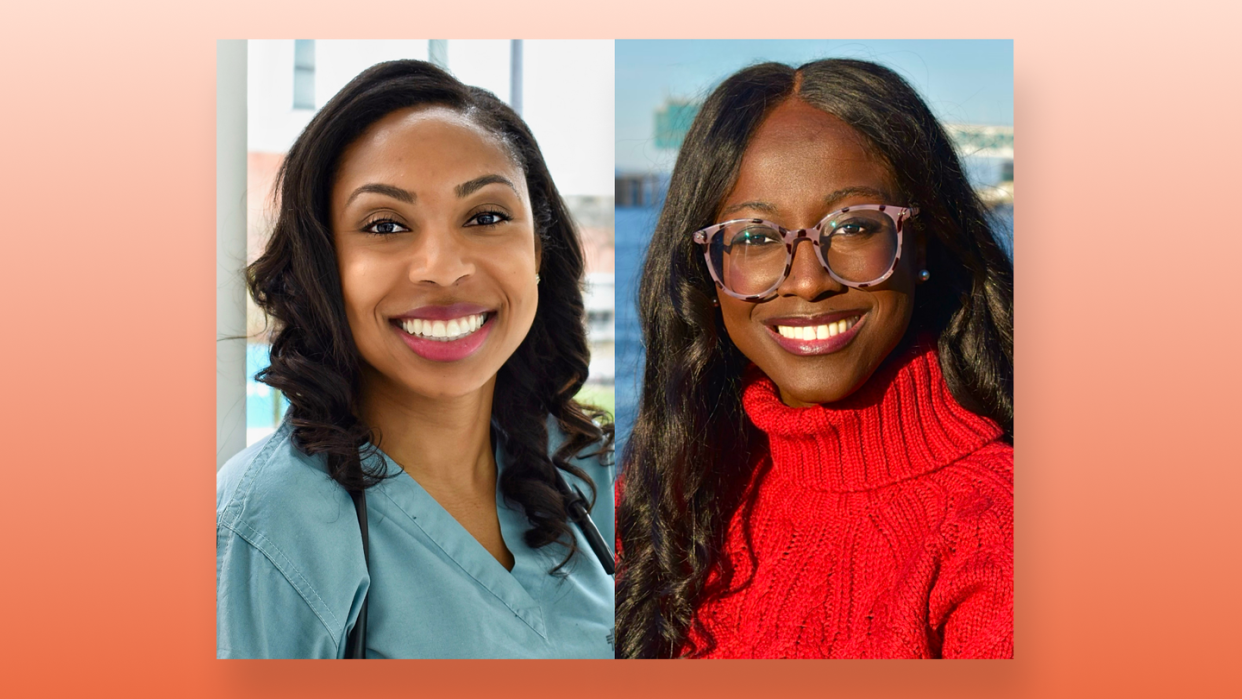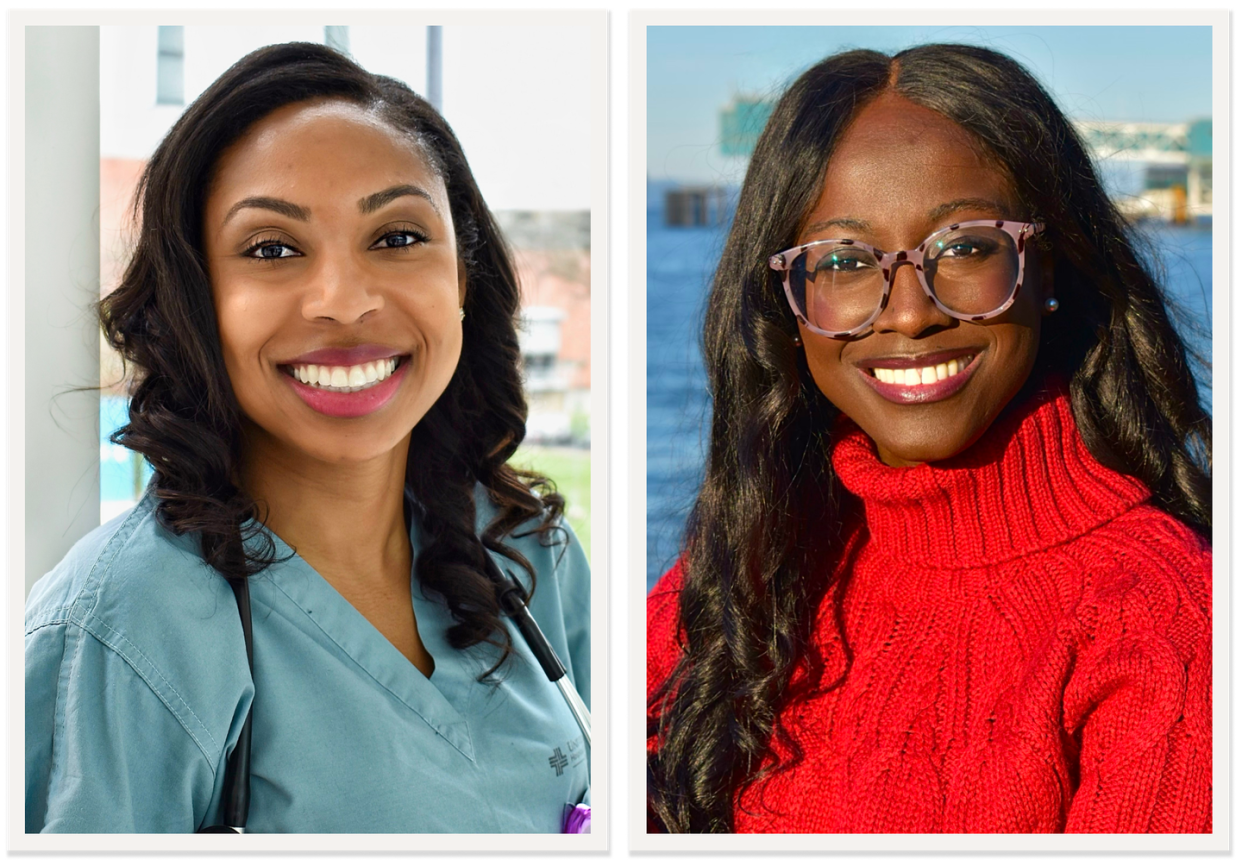Two Black Ob-Gyns on Getting the Maternity Care You Deserve


Mother’s Day is almost here, and if you’re a Black woman who’s considering having a baby, your visions of bringing a little one into the world might be interwoven with worries about the ongoing Black maternal mortality crisis. According to the CDC, compared to white women, Black women have three times the chance of dying from an issue associated with pregnancy, even though more than 80 percent of fatalities due to pregnancy can be avoided in this country. Several celebrities have spoken out, including Serena Williams, who said she almost died from complications after the birth of her first daughter. Journalist and TV host Elaine Welteroth shared her story of switching to a home birth with Black midwives after mistreatment by doctors. (She’s since founded the organization birthFUND, with Williams’s backing, to connect individual funders with families who need quality birth support and midwifery care).
Of course, the majority of women will have safe deliveries. But since it’s vital to make informed decisions about your health, we asked two Black ob-gyns how pregnant people who look like them can get the medical care they deserve. Rachel Bervell, MD, and Tamandra Morgan, MD, launched the Instagram page The Black OBGYN Project. Their mission: to promote “patient advocacy, anti-racism, equity, and inclusion.”
“One of the most common questions we get is ‘Can you find me a Black provider?’” says Bervell (above, right). “We know that cultural concordance in care makes a big difference. There are studies that have proven that when you see a provider who looks like you, you have better health outcomes.” If you’re having trouble finding one, you can DM Bervell and Morgan on Instagram or email them at blackobgynproject@gmail.com.
Read on for their insights and advice.
How long have we faced this crisis in the U.S.?
Bervell: People in the community have known for years that, unfortunately, Black people experience disparities in healthcare at an increased rate. But the maternal health crisis became part of the lexicon in the late 20-teens. A high-profile Black woman, Dr. Shalon Irving, lost her life in the birthing process. She was an incredible scholar and epidemiologist who worked at the CDC. Unfortunately, she lost her life after delivering her baby girl—and that shone a spotlight on the fact that Black mothers are dying at increased rates. Since then, there’s been a huge push of people wanting to see more Black providers, doulas, and midwives.
Why do more Black women die from pregnancy health issues than white women?
Bervell: The elephant in the room is racism—not race. There have been a lot of ways that racism has been institutionalized and become systemic in the way that we practice medicine.
Morgan: It’s not just like “My provider judges me because of my race” but also, what are the long-term side effects of racism inherent in a healthcare system that’s built on data or diagnostic care that’s really altered based on a patient’s race? Why is it that Black women have a higher rate of C-sections? There are a lot of different factors, and all of them culminate in poor outcomes for Black women. Some things aren’t really well understood at this point. For instance, rates of preeclampsia among Black women—whether it’s a biological difference or related to medical racism, all we know is that it tends to be higher for these patients.
What’s a concrete example of how this plays out?
Morgan: There’s a tool clinicians can use to determine a patient’s likelihood or success of having a vaginal birth after a C-section in a prior birth, called a vaginal birth after cesarean [VBAC] calculator. If you had a previous C-section, you’re at an increased risk for needing a second one. The calculator helps clinicians decide which patient should get the chance to have a vaginal delivery, but it factors in race and BMI. These are social constructs. For a lot of Black women who had a prior C-section, their calculator score was going to be lower. That is an example of medical and systemic racism, where these factors are being used to guide diagnostics and therapeutics, when in reality, it’s not based on clear evidence.
Bervell: The VBAC calculator was updated in 2021 to remove race and ethnicity, but it might not be phased out of every healthcare system.
How can Black patients advocate for themselves?
Morgan: It might feel daunting to feel like I need to be the one who’s running the show. Part of advocating for yourself is having a support system. That might look like bringing someone who can take notes to your visits. During labor, a lot of patients experience help from a birth doula, but the highest rate of maternal mortalities happen in the postpartum period. Having postpartum support built in with family, a partner, or a doula is helpful.
Be informed. You know that these statistics exist—talk to your provider about them. Ask, “I’m concerned about high rates of C-sections for Black women. What are your thoughts?” Or “Can you tell me how you make decisions about which patient should have a C-section?” If those conversations don’t go well, perhaps that’s your signal that you should work with another physician.
Bervell: You can get a second opinion. This is about shared decision-making—you are a partner, and this is your body. It’s not just simply listening to what we say and going with it. Really investigate and be assertive. If something doesn’t feel right, then you need to speak up. If you’re not being heard, a second opinion—or God forbid, a third or fourth—is a lifeline. Often when we hear stories of a woman dying in childbirth or the postpartum period, it’s because she wasn’t listened to.
What wisdom do you share with pregnant loved ones?
Bervell: When my last girlfriend was pregnant, the first thing I said was for her to highly involve her husband. Oftentimes, male partners get left out, and they aren’t in the conversation because it feels like a very woman-oriented space. But it’s a community space. I also recommend that friends get a doula if it’s within their means. Research has shown time and time again that doulas improve birth outcomes, mainly because they’re another person who can ask questions when you are focused on your body. They act like a health advocate. Birth once was a community effort—1,000 years ago, you would have a whole group with you to deliver one child. We shouldn’t lose sight of that. It’s inherent within us.
Morgan: Do research that’s within medical guidelines. You can see a lot of scary stuff on the internet—there’s this whole world of TikTok medicine with a lot of extreme points of view. You have to do a good job of finding evidence-based information. Protect your peace, whatever that might look like for you.
What do you know for sure?
Morgan: Black women are amazing.
Bervell: Conversations like this matter.
This interview has been condensed and edited for clarity.
You Might Also Like
